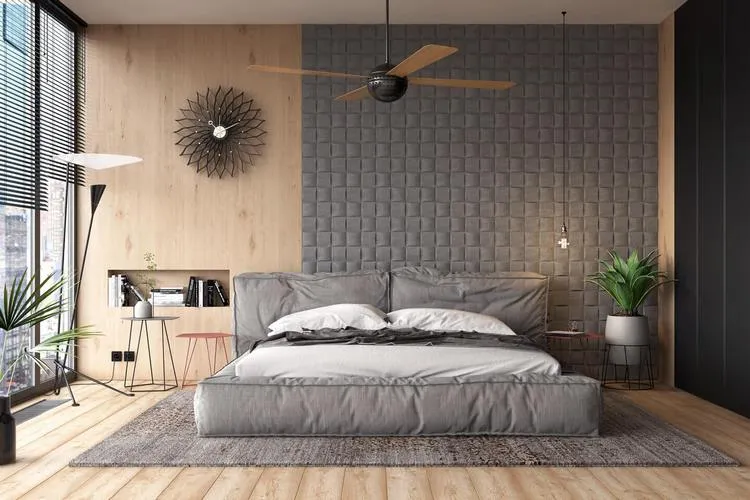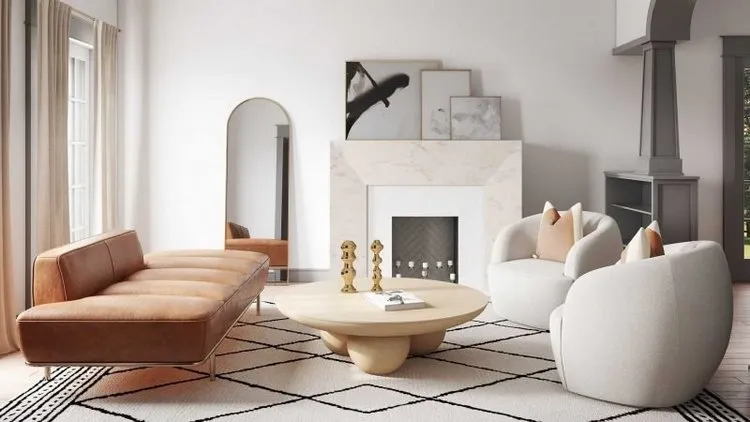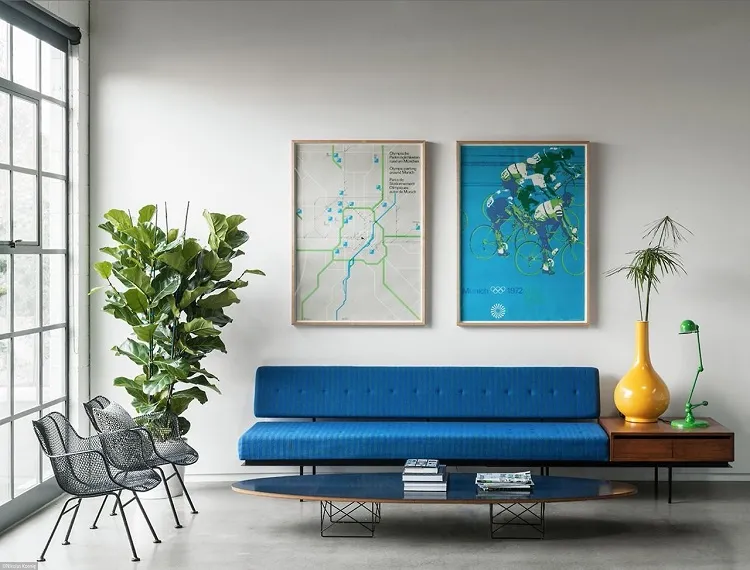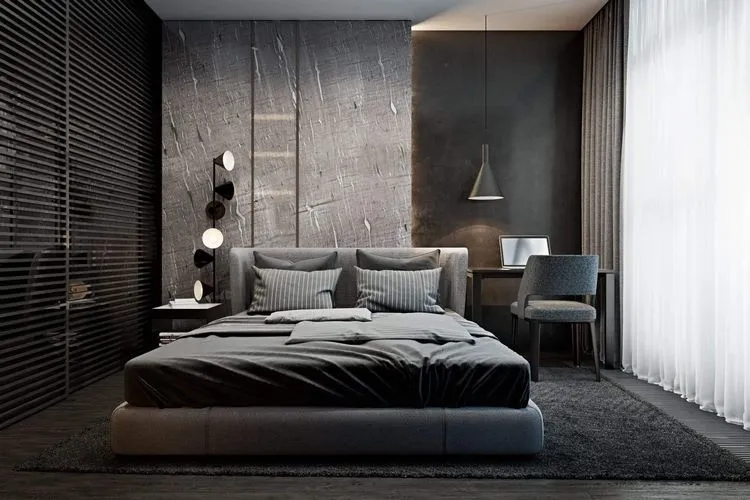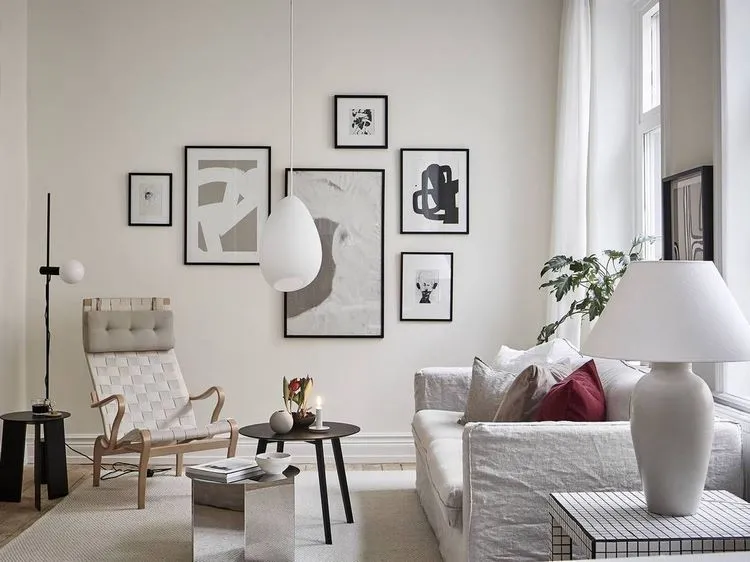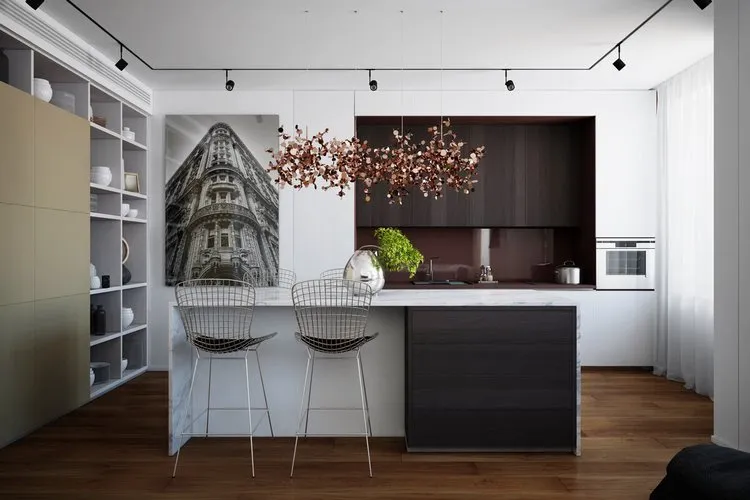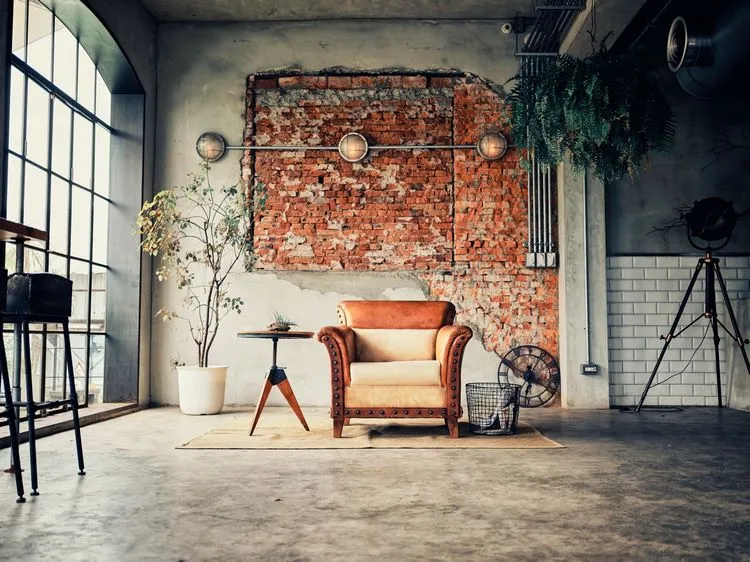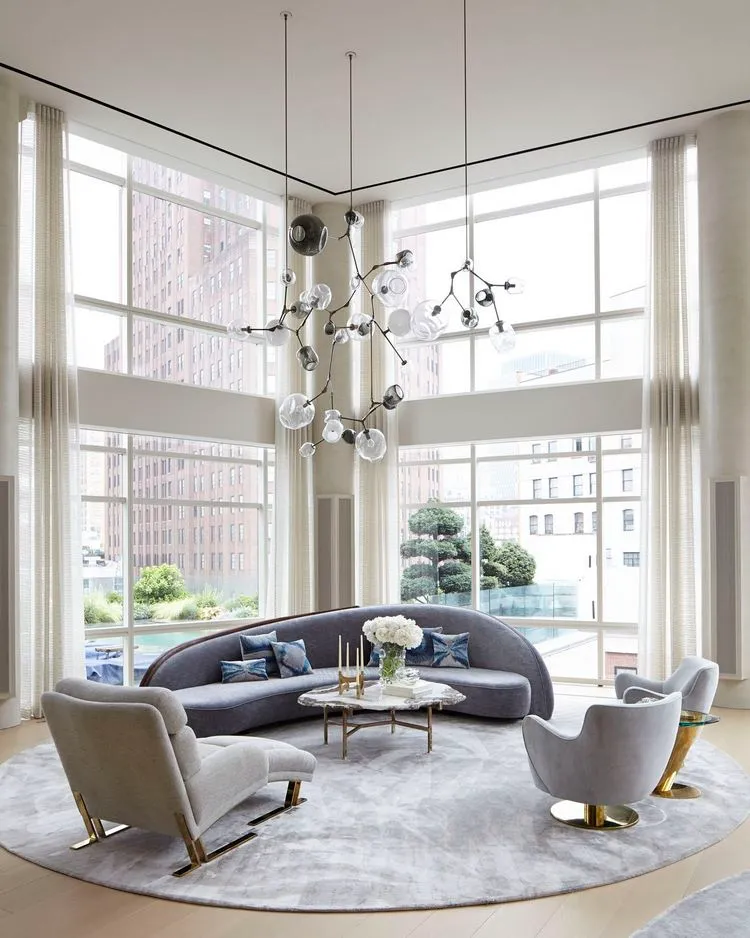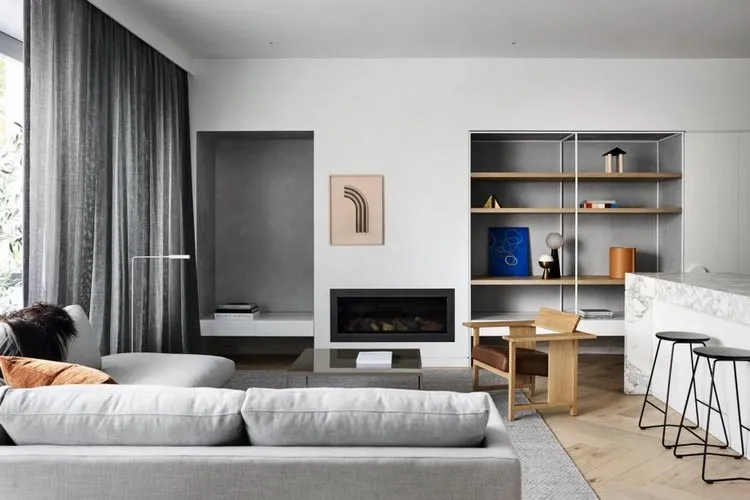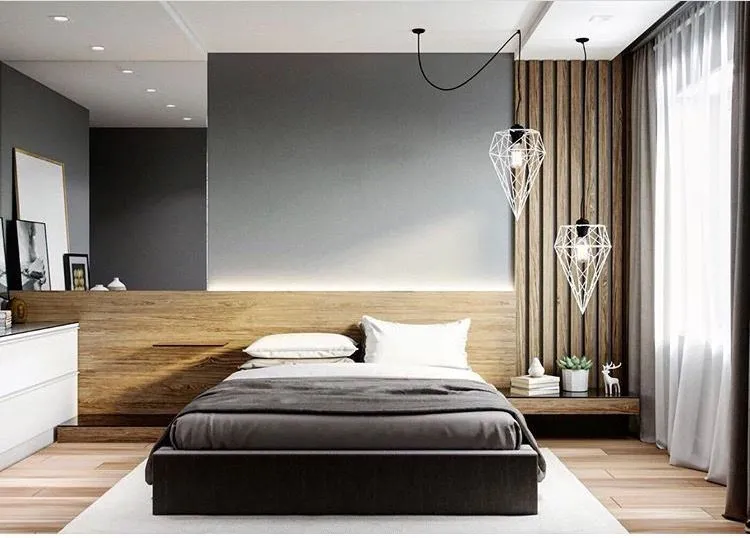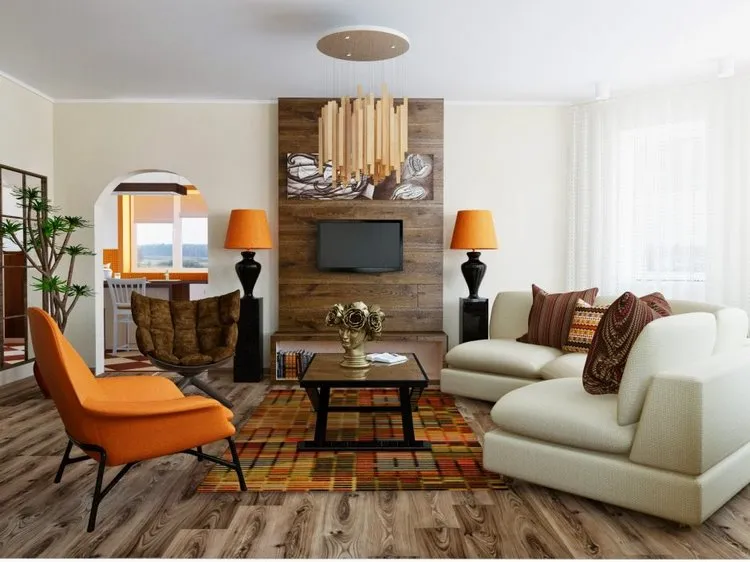While symmetry is used when the designer wants to create a more formal interior, when used excessively, it can create psychological discomfort. A modern interior is impossible without fantasy and dynamics and that is why asymmetrical interior design ideas are so popular. The slight irregularity of the lines brings freedom and dynamics to the living space, changes the overall symmetrical scheme and makes the interior more complex, unusual and visually interesting.
Why Choose an Asymmetrical Interior Design?
Asymmetrical elements are eye-catching and add character to the space and such interiors are rarely boring. They are often called “informal” and for a good reason. Asymmetrical balance in interior design is a striking technique that can make the atmosphere more interesting and lively as well as solve a number of important functional tasks.
A balanced asymmetrical interior design is achieved by shifting the compositional center in one direction or another in 60/40 or 70/30 ratio. The main rule of asymmetry is the complete absence of mirroring. The dynamic feeling can be created with the help of multi-level arrangement of objects and accessories, different color or texture of items or furniture the same style, for example, two armchairs similar in shape with different upholstery.
This design technique is great when you want to fix the flaws in the configuration of the room. Is your living room long and narrow? Try to arrange furniture and decor along one of the long walls. If this is not enough, also use the space at the far short wall. In this way you will shift the “center of gravity” of the interior and leave enough free space for the eye to perceive the room as quite spacious.
With the help of asymmetry, you can arrange an accent wall and visually highlight the desired area. The technique allows you to create a sense of imperfection in the atmosphere of the room and not associate it with hotel interiors.
Asymmetrical interior design ideas create a compromise between “air” and functionality. You can place furniture to the right or left shifting in the visual center and at the same time get the effect of a relaxed space configuration.
Also read: Decor Trend 2024: 10 Sublime and Chic Design Ideas to Transform Your Interior!
How to Introduce Asymmetry into the Interior?
For a person who is not experienced in the art of design it is not easy to create a harmonious asymmetry and that is why it is best if you trust a professional. However, if you still want to try, here are some tips how to introduce asymmetry into the interior:
Add an Asymmetrical Element as a Focal Point
Make an asymmetric element the main one in the space. An asymmetrical detail can become a focal point in the interior. It makes a statement, gives character and personality. What items can be selected? The most popular idea is the fireplace, which easily becomes the centerpiece in a living room or open plan spaces. Even if the fireplace is in the center of the room, you can place furniture asymmetrically, arrange a gallery wall or add a piece of art. It is important to remember that one element is enough.
Create Asymmetrical Compositions
When you add asymmetrical elements, it is important to make sure that everything looks like a single composition. Repeating elements with similar colors, lines and shapes is exactly what you need to make the interior harmonious even with asymmetry.
If you look at asymmetrical interior design ideas you will notice that corner sofas and diagonal arrangement of furniture are most often used. For example, chairs can be placed in the corners diagonally.
Items at different levels, furniture pieces or decorative accessories of different heights placed opposite each other also help creating an asymmetrical interior. For example – a tall floor lamp on one side of the sofa and a low table with a small table lamp on the other side.
Use Colors and Textures to Add Visual Interest to Asymmetrical Interiors
Designers, experienced in creating interior spaces, skillfully combine light and dark tones, complex shapes and textures, giving the space an unexpected and exciting appearance. It is important to remember that asymmetry must be balanced in terms of “weight” which means that both halves of the room should be approximately the same. That is valid not only for furniture, but also for textures, colors, and decor. A dark wall is balanced by a light window, a dark TV screen is balanced by light furniture.
Also read: Symmetry in Interior Design – How Balance Is the Key to Success?

